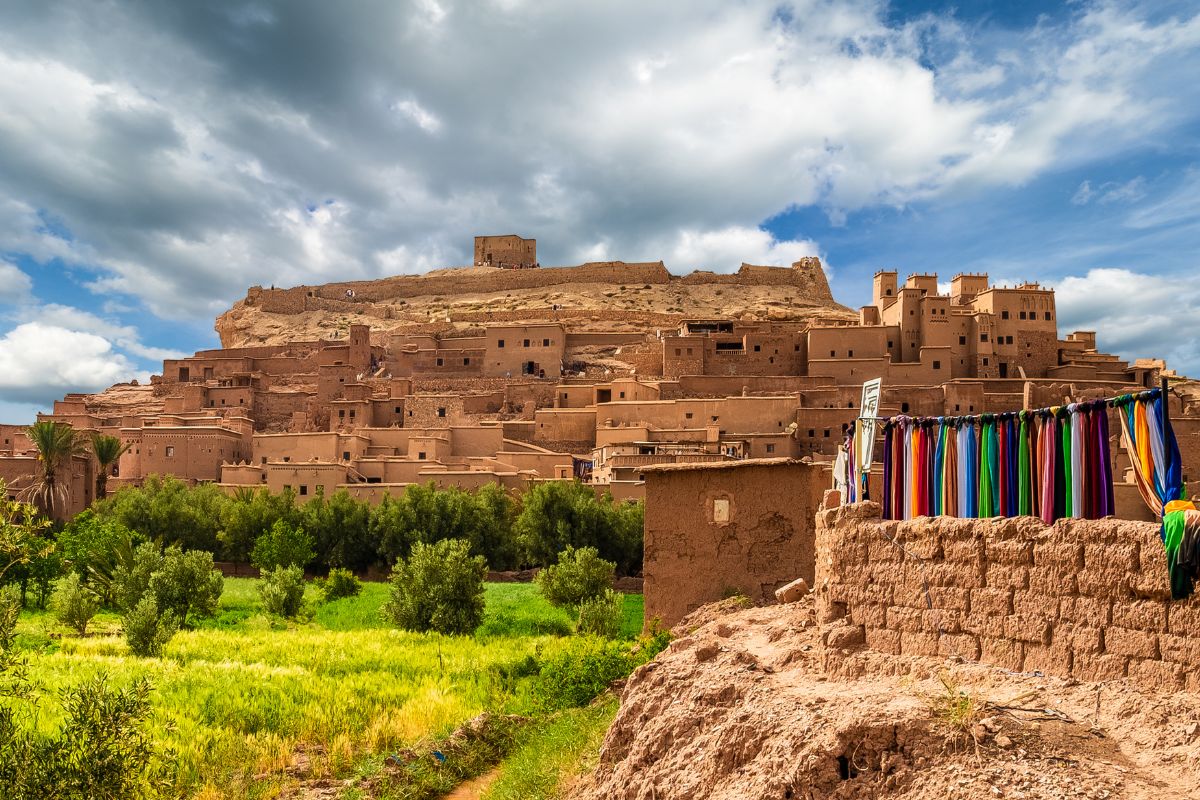
Morocco is a land of rich cultural diversity, where traditions have thrived for centuries. Among the most prominent and enduring cultural groups in the country are the Berbers, who have inhabited North Africa for thousands of years. Berber Culture in Morocco is a tapestry of traditions, language, and artistry that continues to play a vital role in shaping modern Morocco.
Berber Culture in Morocco: Preserving Traditions in a Modern World
A Glimpse into Berber History
The Berber people, also known as Amazigh, are indigenous to North Africa, including regions of Morocco, Algeria, Tunisia, Libya, and Mali. Their history dates back to ancient times, with roots that stretch as far as 3000 BC. Berbers are renowned for their resilience and adaptability, having faced numerous challenges throughout history, including invasions by various civilizations.
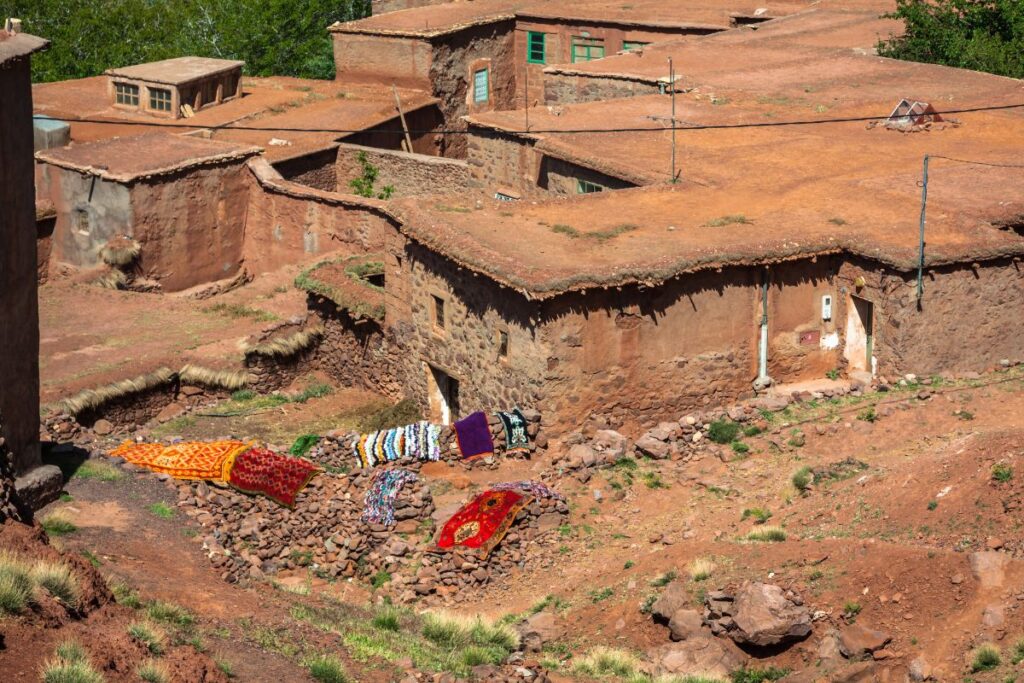
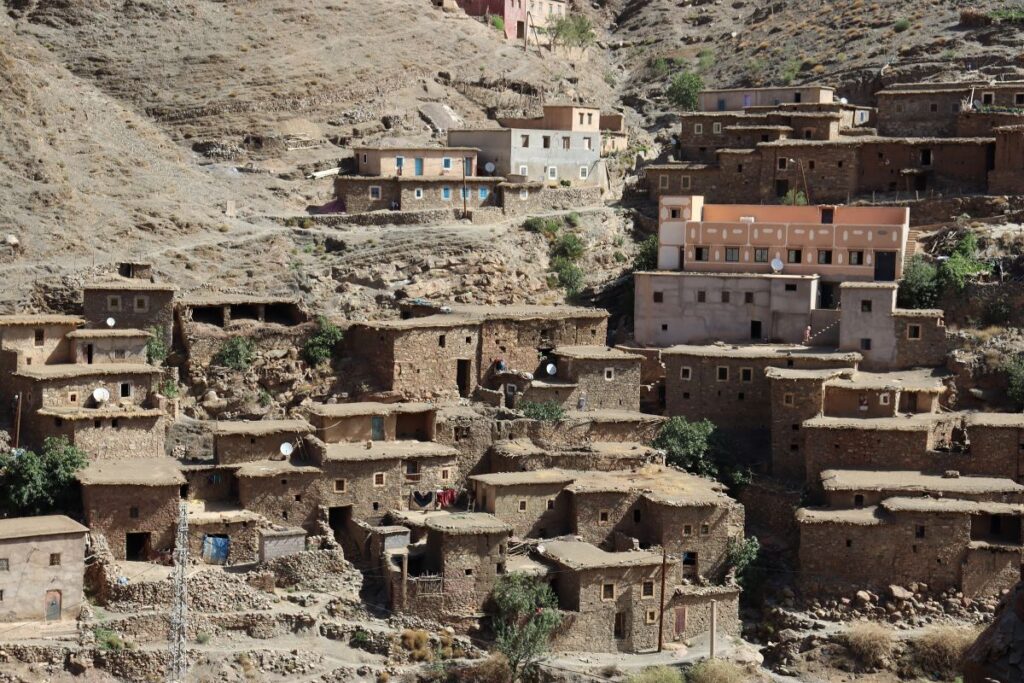
Language and Identity
Central to Berber culture is the Amazigh language, which holds a significant place in Morocco’s linguistic landscape. In 2011, Morocco officially recognized Tamazight, the standardized written form of the Berber language, as one of the country’s official languages alongside Arabic. This recognition marked a significant step toward preserving and promoting Berber identity.
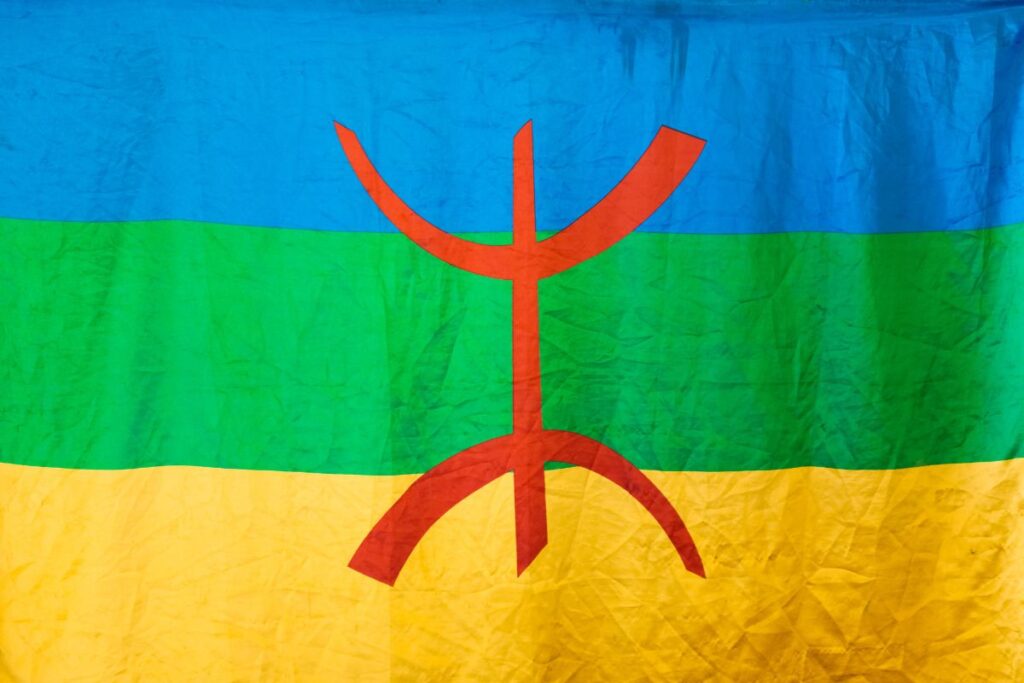
Traditional Berber Clothing and Attire
One of the most distinctive aspects of Berber culture is its traditional clothing and attire. Berber clothing varies by region and tribe, showcasing an array of vibrant colors and intricate designs. Women often wear brightly colored dresses and headscarves, while men may be seen in traditional robes and turbans. These garments reflect the Berbers’ connection to the land, as natural dyes are used to create these colorful fabrics.
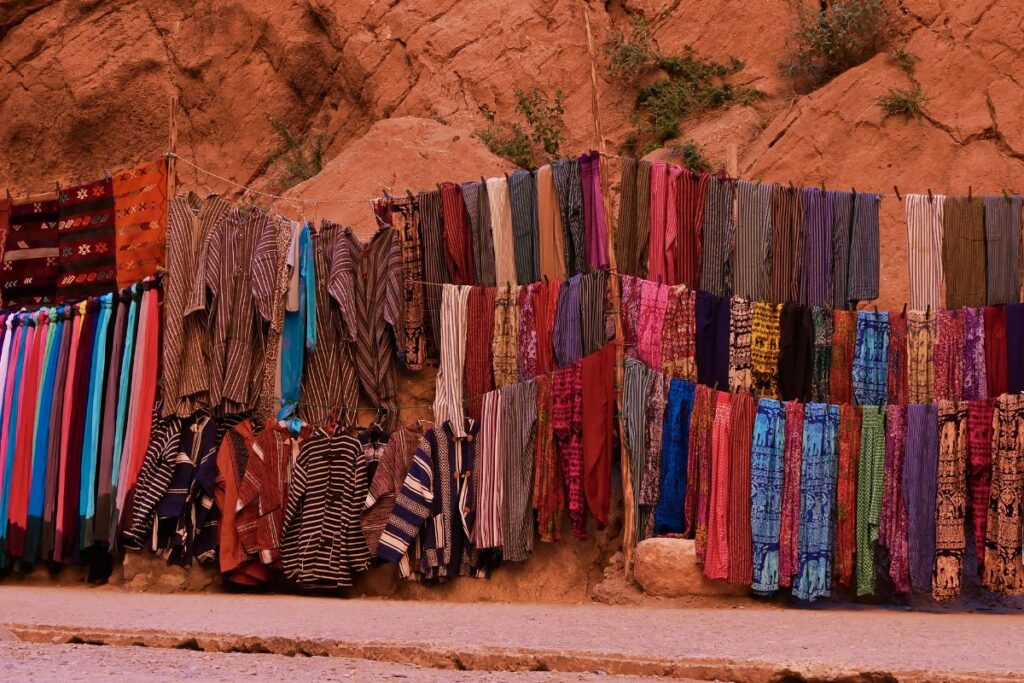
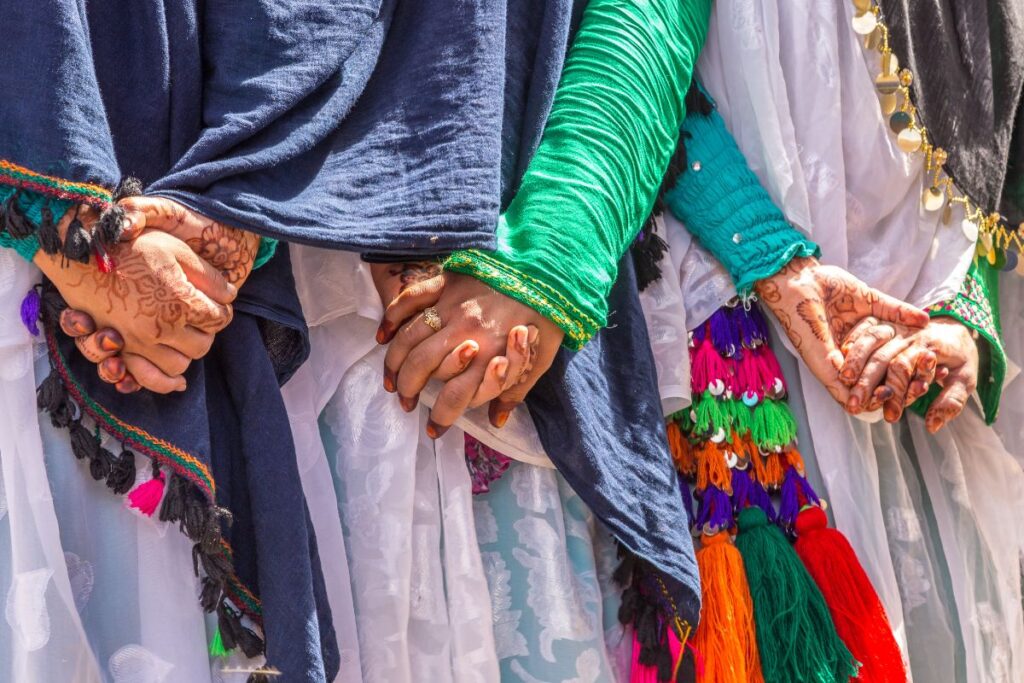
Berber Artistry
Berber artisans are renowned for their craftsmanship, creating exquisite works of art that reflect the culture’s deep-rooted traditions. Traditional Berber rugs, known as Berber carpets or “Boucherouite,” are famous for their intricate designs and vivid colors. Each rug tells a unique story and is often passed down through generations.
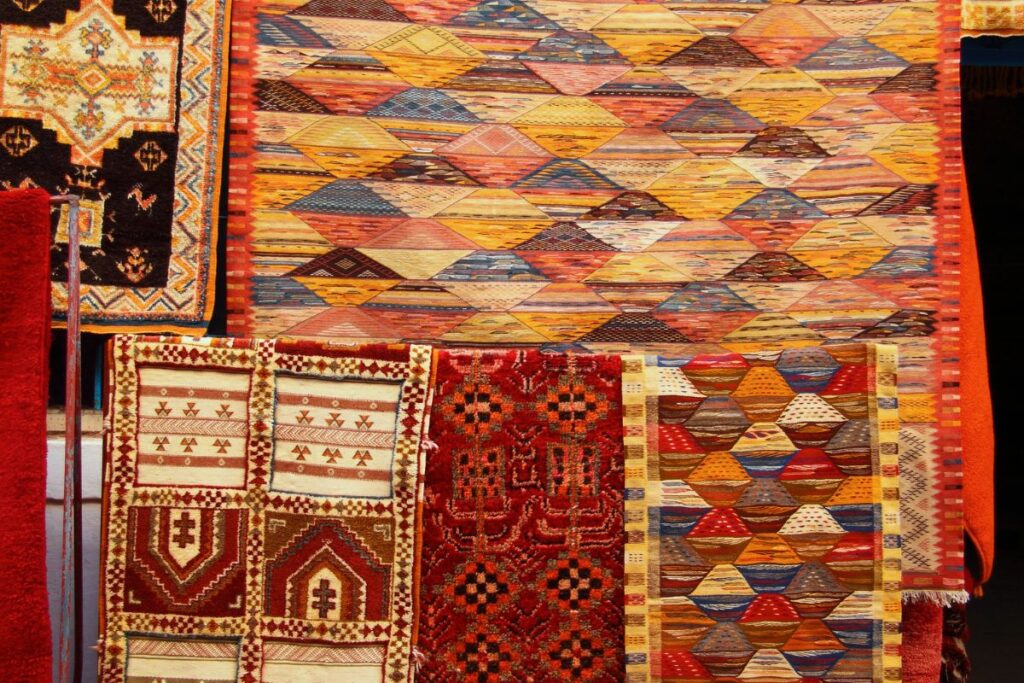
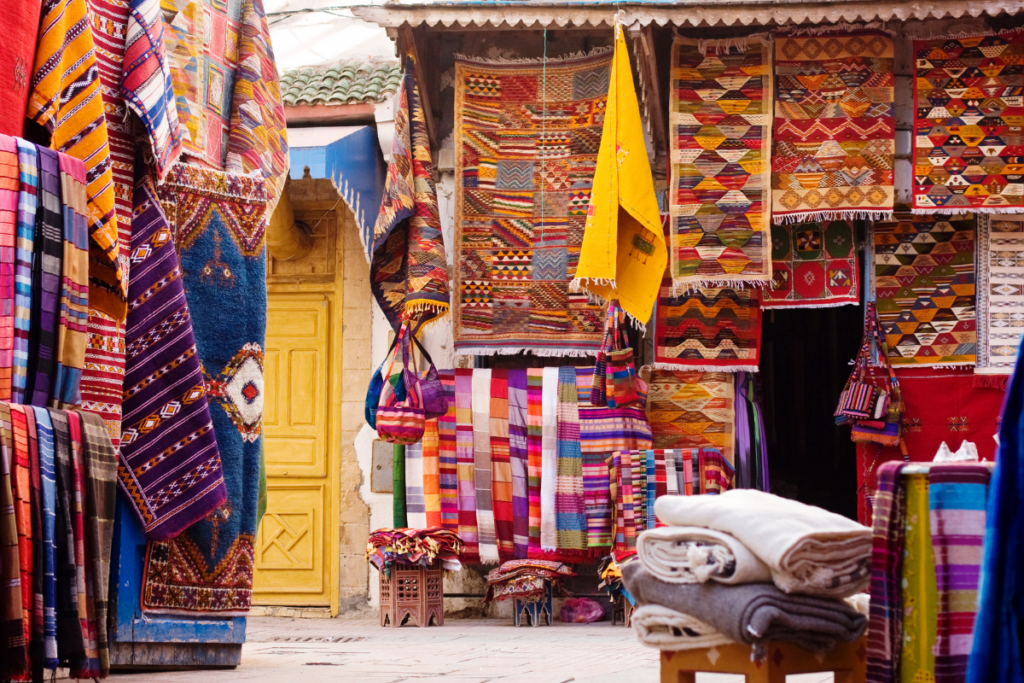
Music and Dance
Berber music and dance are essential components of the culture, with rhythms and melodies that evoke the spirit of Morocco’s diverse landscapes. Traditional Berber instruments, such as the “tbel” and “ribab,” are used to create music that accompanies celebrations, storytelling, and daily life. Berber dance often involves lively footwork and intricate hand movements, making it a captivating art form to witness.
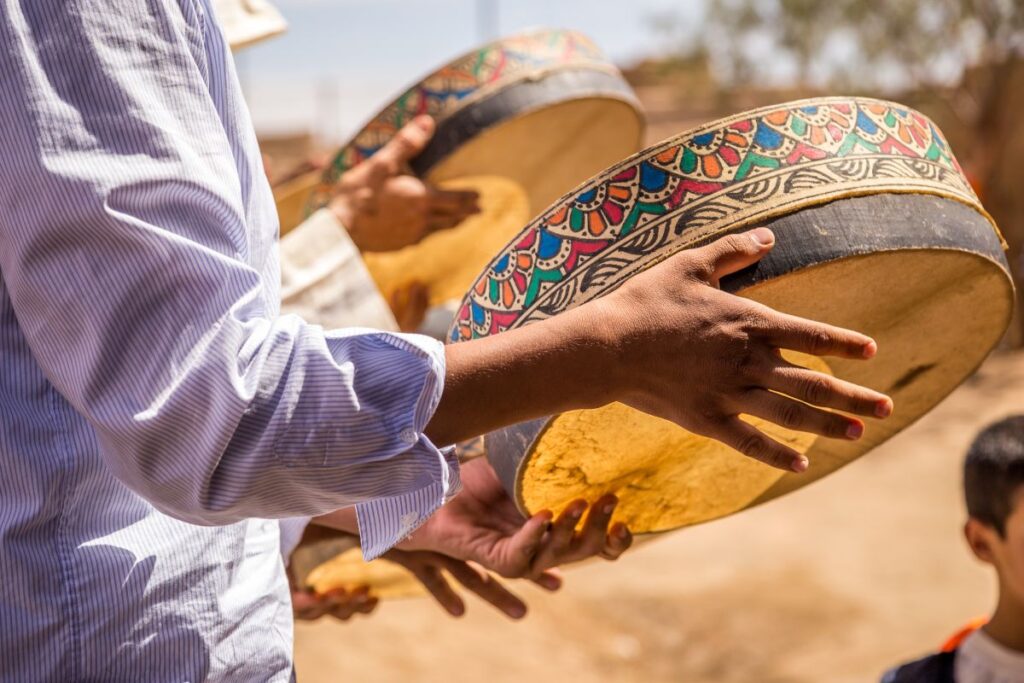
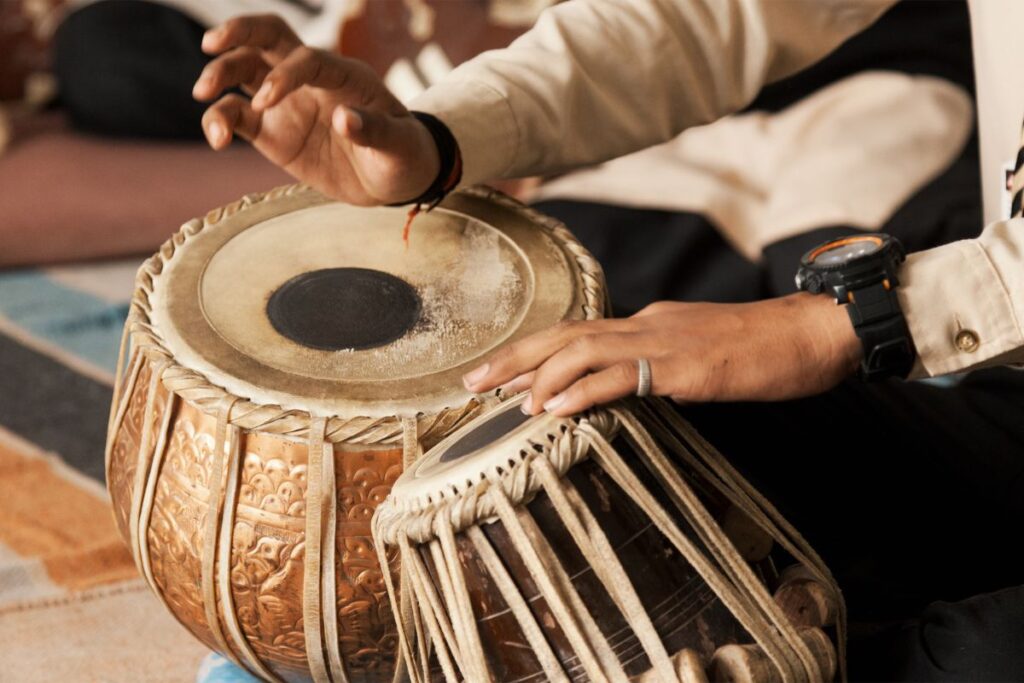
Cultural Celebrations
Berber culture is celebrated throughout the year with various festivals and ceremonies. One of the most significant events is the Amazigh New Year, known as “Yennayer.” This festival marks the beginning of the agricultural year and is celebrated with feasts, music, and traditional dances. Another important celebration is the “Imilchil Marriage Festival,” where Berber tribes gather to celebrate love and unity.
Challenges and Preservation Efforts
While Berber culture remains vibrant and influential in Morocco, it faces challenges in a rapidly modernizing world. Urbanization, globalization, and the influence of mainstream culture pose threats to traditional Berber ways of life. Efforts are underway to preserve and promote Berber culture, including education programs, cultural centers, and festivals.
Tourism and Berber Experiences
For travelers to Morocco, experiencing Berber culture can be a transformative journey. Visitors have the opportunity to stay in Berber villages, where they can learn about daily life, partake in traditional ceremonies, and even try their hand at Berber crafts. These immersive experiences offer a glimpse into the timeless traditions of the Berber people.
Berber culture in Morocco is a testament to the resilience of indigenous traditions in a modernizing world. With its rich history, distinctive artistry, and vibrant celebrations, Berber culture continues to thrive and evolve, shaping Morocco’s cultural mosaic in profound ways. As Morocco embraces its diverse heritage, the preservation of Berber traditions remains a vital and enduring aspect of the country’s identity.
